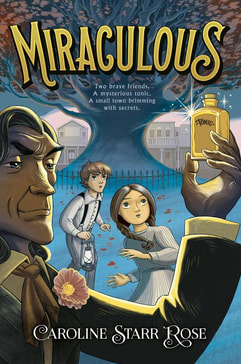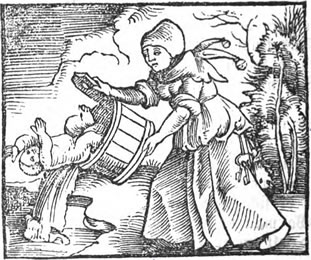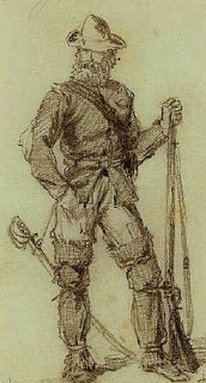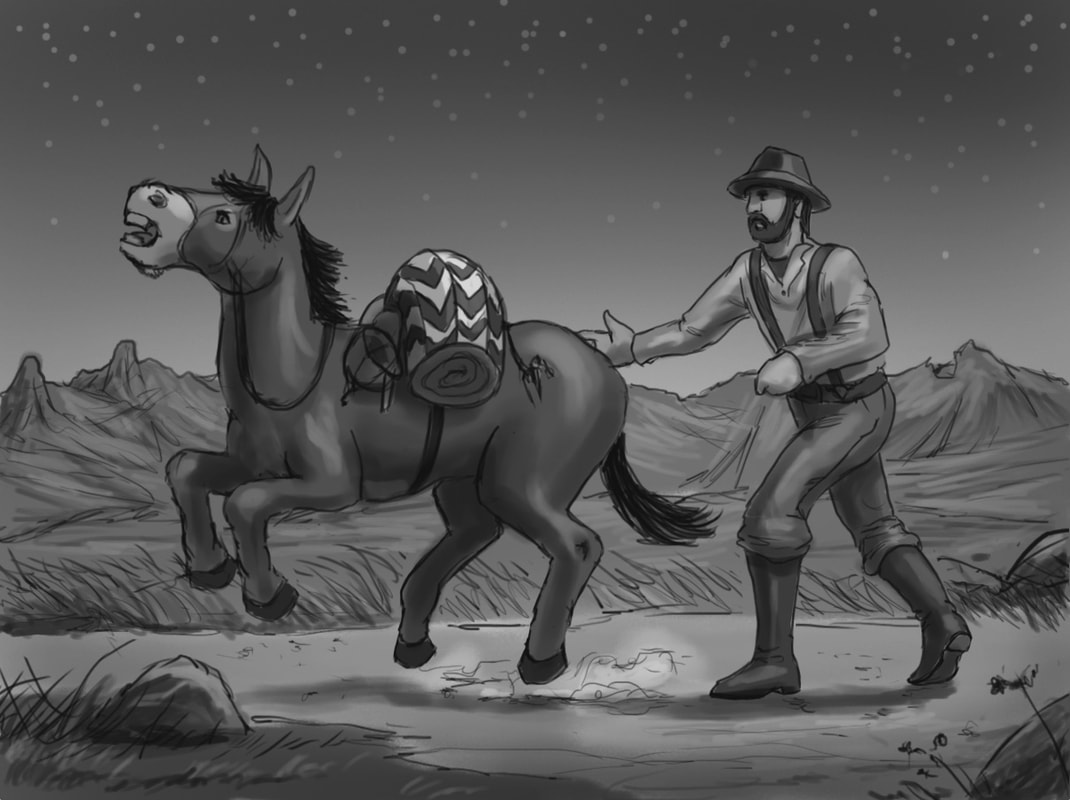 Colonel John P. Slough , of the First Colorado Regiment ( From a war - time photograph loaned by Mr. Samuel C. Dorsey , of Denver . )
Colonel John P. Slough , of the First Colorado Regiment ( From a war - time photograph loaned by Mr. Samuel C. Dorsey , of Denver . ) John had big shoes, and expectations, to fill.
John Potts Slough (whose name rhymes with 'plough') was born on February 1, 1829, in Cincinnati, Ohio. He earned a
Slough then moved to Denver and became one of its preeminent lawyers. When the Civil War broke out, he entered the service as the Captain of the 1st Colorado "Pike's Peakers" Volunteer Regiment, then convinced the territory's Governor, William Gilpin, to raise his rank to Colonel. Slough used family money to support the troops. He located a vacant building, the Buffalo House Hotel, and got it donated for use as barracks until Camp Weld was built on the south side of Denver. Despite his organizational acumen, Slough was not popular with the troops, who found him cold and imperious.

Colonel Edward Canby, who commanded the Department of New Mexico, ordered Slough to stay at the fort, but Slough deliberately misinterpreted the orders and marched to Glorieta Pass, where he engaged in a battle that ultimately turned the tide and sent the Confederate Army back to Texas. The victory was not a sweet one for Slough. Worried that he would be drummed out for disobeying orders and convinced that his own men fired on him during the battle, he resigned his commission and left the state.
Slough went to Washington, D.C., where once again things seemed to be going his way. He was appointed Brigadier General of Volunteers and became the military Governor of Alexandria, Virginia. Slough served as pallbearer at Lincoln's funeral and was a member of the court that convicted Henry Wirz, commander of the notorious Andersonville Prisoner of War Camp. In 1866, President Andrew Johnson appointed Slough the Chief Justice of the Supreme Court of New Mexico.
 Slough is buried in Spring Grove Cemetery, Cincinnati, Ohio.
Slough is buried in Spring Grove Cemetery, Cincinnati, Ohio. But once again, Slough's fiery temper and outspoken tirades got him into trouble. President Andrew Johnson wanted Slough to break down the corrupt patronage system that had plagued New Mexico for centuries, and Slough began by attacking peonage, which he compared to slavery. This swiftly earned him enemies in the still divided and notoriously violent territory. On December 17, 1867, Slough was playing billiards in the La Fonda Hotel when he and another former Union officer and New Mexico legislator, William Logan Ryerson, got in an argument. Two days later, Ryerson, who was also a part of the notoriously corrupt Santa Fe Ring, fatally shot an unarmed Slough in the lobby of Santa Fe's Exchange Hotel. Ryerson was tried for murder but the jury acquitted him, saying he had acted in self defense.
































